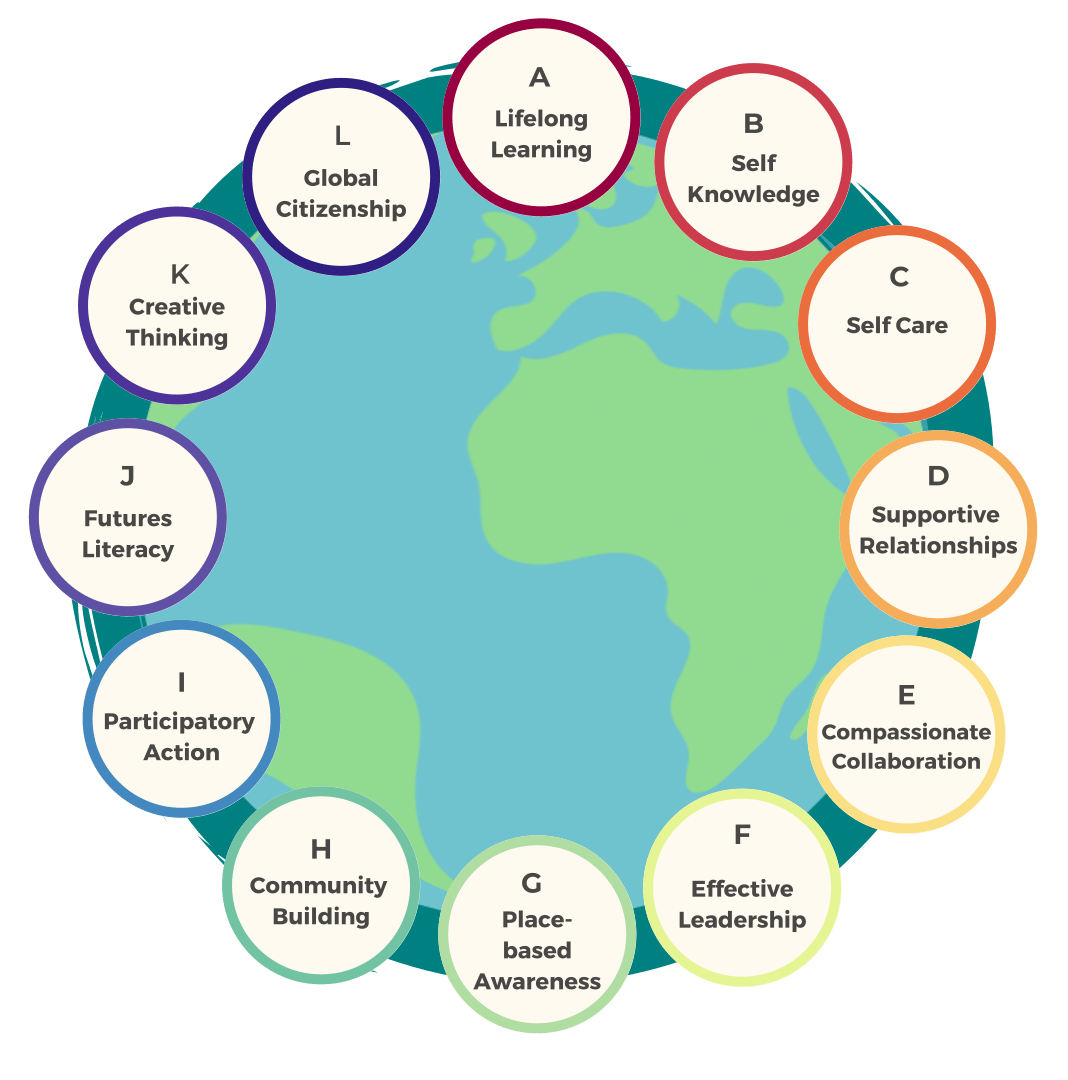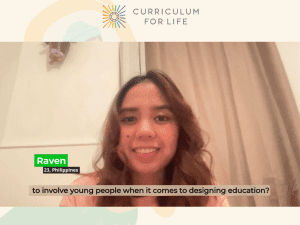Accessible
You can access our open-source resources and use them to facilitate high quality Life Skills Learning in the classroom.
Easy to deliver
The learning methods and facilitation techniques are easy to implement and embedded in the lessons. No specialist training is required to facilitate the Curriculum for Life lessons.
Convenient
We provide ready to use, transferable resources. Lessons are simply presented, downloadable and adaptable.
Co-create with us
Educators know best how to support learners. They play a central role in the development of the Curriculum for Life by contributing their wealth of pedagogical knowledge.
We invite you to co-create Curriculum for Life modules with us aligned to our mutual interests.
Have your say
Below are the major themes that young people and educators in our network think should be part of the Curriculum for Life. Do you agree?
Select the ones that resonate most with you.

Calls for change
“Education is no longer about teaching students something alone; it is more important to be teaching them to develop a reliable compass and the navigational tools to find their own way in a world that is increasingly complex, uncertain and volatile.”
“In 2018 over 130,674 young people voted having a curriculum for life as the most important issue for them. Young people are saying that the education system needs to prepare them for life after school and college!”
“Integrating social and emotional development with academic instruction is foundational to the success of our young people, and therefore to the success of our education system and society at large.”
“It is disturbing to find that around half of young people feel their education has not prepared them for the world of work, at a time of great economic uncertainty and technological change. Teachers, schools and colleges deserve better support.”
“With little idea about the jobs of the future, the key responsibility of the education system is to equip young people with the skills needed to manoeuvre this ever-changing landscape.”
“Our research highlights that current Government policy, such as the narrower curriculum and increased content and exam-focus of GCSEs and A levels, are standing in the way of young people developing the skills necessary for working life.”
“Education needs a major transformation to meet the current challenges facing humanity and the planet. There is an urgent need for greater headway in education.”
“One thing that is clear from the research is that the pace of change will continue to accelerate. Education systems developed 20-30 years ago will actually need to plan for a future 20-30 years away.”
“It is believed that as many as 65 per cent of today’s students will be employed in jobs that don’t yet exist, which means preparing our young people for the future world of work has never been more challenging. While qualifications and knowledge remain important, the students of today need the opportunity to grow into creative and critical citizens, ready to shape the future for themselves.”
“The importance of a broad and balanced education system that equips students with the character, knowledge, and skills needed to adapt to the changing nature of work is critical. This matters most for communities and people from difficult or less advantaged backgrounds and places.”
Latest Blog Posts
Co-creating curricula with students-as-partners
This is a brief summary of Oli’s master’s dissertation, exploring the theory, practices and value of co-creating curricula with students-as-partners.
Framing a Curriculum for Life: The Origins
In this first blog post, I want to describe our purpose and paint a picture of it in action. Assessing our curriculum development approach during

Call To Action: Involving Youth in Designing Education
This blog is about the importance of involving young people in designing education, this aims to accompany the video blog of young people.

